’It’s here. In our towns, our cities and in our communities’
Jackie Macadam meets Dr Pam Cairns and learns the shocking truth about human traicking.
PROFILE
“YOU know, you think if it’s here at all, it must be confined to the big cities, but fairly recently, I read about a case of people trafficking in a hotel in a popular tourist area in the Highlands. It really is shocking when you start looking at it.”
Dr Pam Cairns delivered a passionate speech to the annual Guild gathering in Dundee about human trafficking – a topic that has become central to her life in recent years.
Born in Moffat, Pam spent her early years at Tundergarth School, with 12 other pupils.
“I basically had one teacher throughout my primary years,” she says.
“I have so much to be grateful for. She was a good teacher who encouraged us to learn. If she’d been a poor teacher, and had turned me off school for life, I can’t imagine how my life would have turned out.”
After attending Lockerbie Academy, Pam went to Edinburgh University to study medicine, and after graduating, trained to become a GP.
“To begin with, life was fairly predictable. I attended church, I met Alan, my husband, a pharmacist, and we had three children. We now have five grandchildren.
“Being a doctor doesn’t give you an awful lot of free time, so when Alan suggested one evening that we watched a documentary on TV about a small Scottish charity, I welcomed the chance to sit down for once!
“The documentary was called ‘Ferry Up The Amazon’ and was about the work of the Vine Trust. Alan and I were impressed with the passion and the imagination behind the work being done and decided to make a donation to them.
“Imagine our surprise when Willie McPherson, the CEO of the Vine Trust, phoned us up and asked if we’d like to go to Peru.
“Once we realised it was a genuine offer, we were right on board with the idea.
“In 2004 we took the first medical team out there to work with the indigent Indians along the Amazon. All the volunteers were from the Kirkcaldy area supported by the local churches. There were three doctors, two dentists, one nurse, a teacher – and a pharmacist!
“We were very aware of the aims of the trip. The Vine Trust would like the locals to stay in their villages and keep the river alive, but there is a huge draw to the towns for them, looking for a better life with jobs and healthcare for their children. Unfortunately that often – usually – means they wind up in the slums of the cities and their lives are worse than ever.
“When we came back from Peru, it’s fair to say our world view had changed.
“I gave up my GP work and took on the role of volunteer medical director for the Vine Trust.
“The work I did there began to really open up my eyes to the life of the street children. I just wasn’t prepared for the complete lack of care that street children around the world experience; the abuse; the danger and the exploitation they suffer from.
“It really affected me and I desperately wanted to do something to help them.
“I met Paul Clark, the director of Scripture Union Peru. He was a great raconteur who had been working with the street boys for over 25 years. He told us some harrowing stories from his experiences. He spoke of the cruelty meted out to street children from shopkeepers, abusers and the authorities.
“Many of the children are abandoned due to poverty and lose their families when their mother takes a new partner. In Peru, and some other countries, a man won’t raise another man’s children – so youngsters find themselves in the streets. The mothers seem to hope that they will just run with the other street children, but the truth is their lives are horrible, full of fear and cruelty, being pursued by the police, the authorities and preyed on by predators of every type.
“They may be abandoned, orphaned, fall victim to diseases like ebola, malaria, natural disasters and even war. Many are runaways from violent households.
“The numbers are huge according to UNICEF.
“Over 100 million children are thought to be living on the streets. In India, children can be born on the street, live in the street and die on the street.
“They are forced to work on the rubbish tips of Iquitos, Mumbai, Delhi raking through toxic waste, or be maimed by either a parent or abuser to make them better beggars.
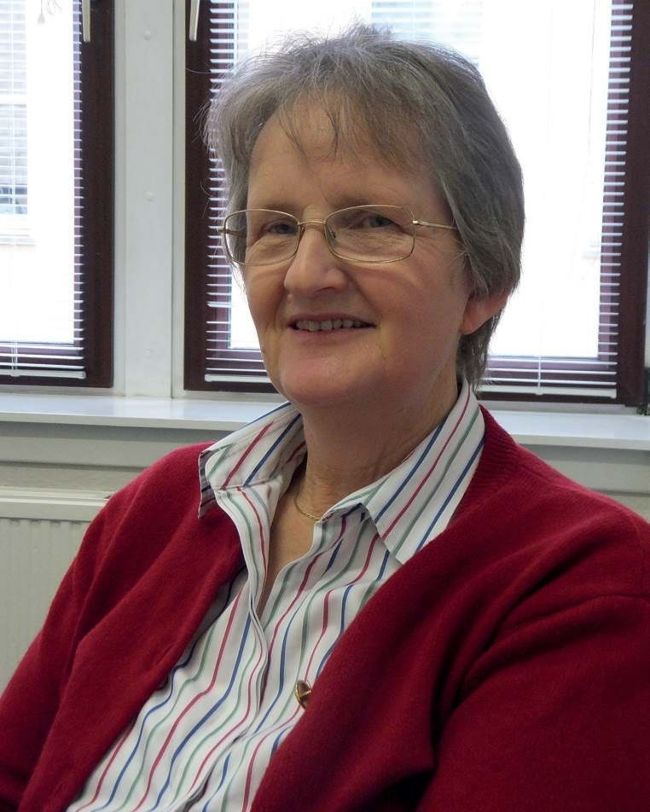
Dr Pam Cairns
“I knew what medical problems I would find, but it was the plight of these children that really touched me. The way they had to live affected me most.
“I wanted to get the word out to as many people as possible – especially youngsters – so when I retired from the Vine Trust I wrote a book called The Dead Don’t Hurt Us.
It’s basically about the adventures of a young girl – Katie and a boy, Tim, who escape a plane crash in the Amazon jungle. They are rescued by Amazonian Indians but end up on the streets of the jungle city of Iquitos where they are forced to live on the streets with the other street children. They often hide in cemeteries and sleep there because, as one young boy said to us, ‘the dead don’t hurt us’. Imagine only feeling safe in a cemetery where you can hide in the dark.
“I am a keen member of the Soroptimists and began giving talks about the plight of the street children, to them, to community groups and schools as well as Guilds.
The mothers seem to hope that they will just run with the other street children, but the truth is their lives are horrible, full of fear and cruelty, being pursued by the police, the authorities and preyed on by predators of every type.
“I saw the film Amazing Grace about the great Christian abolitionist William Wilberforce and I realised that sadly there are more slaves today than ever before in history and that street children are extremely vulnerable to exploitation.
“I represent Scottish Soroptimists on anti-human trafficking cross-party groups at the Scottish Parliament and gave evidence to the Justice Committee prior to the publication of the Human Trafficking and Sexual Exploitation Bill in 2015.
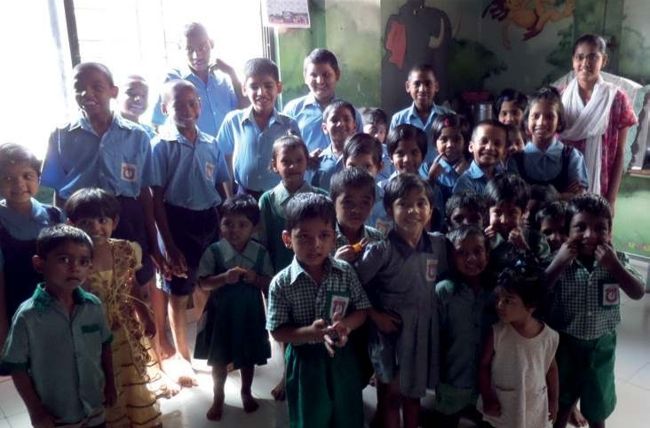
The kids in 2014 in a cramped room across from the brothels
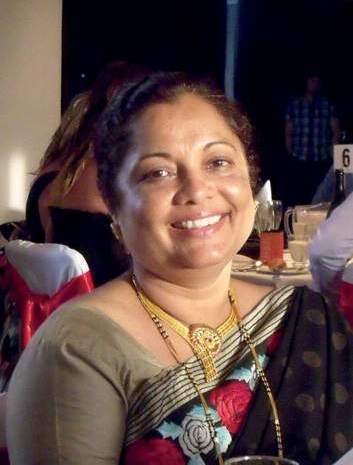
Seema Waghmode
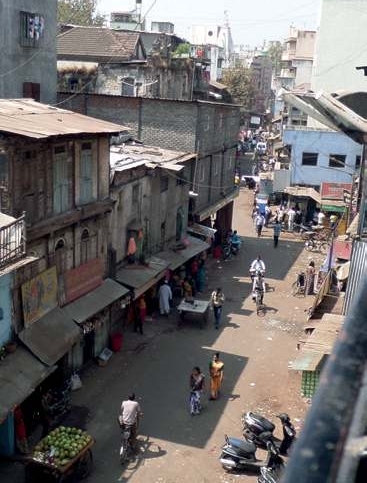
Pune’s red light district
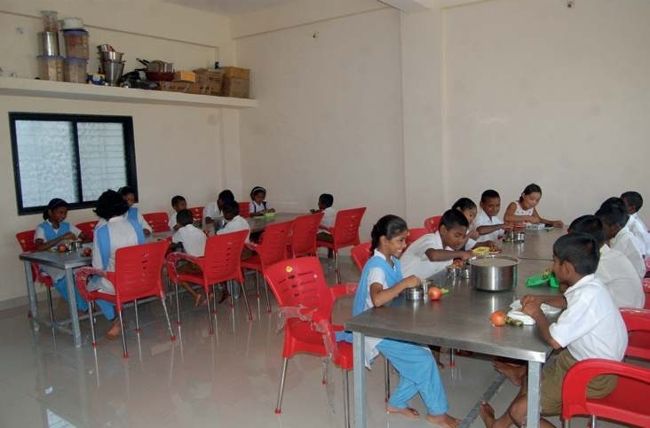
The Child Development Centre in Bori
“That act is truly making a difference.
“Before, if someone was found to be here illegally, and had probably been trafficked, they would have been treated as a criminal and deported. Since the act, and with the training now given to all the front line services, police, ambulance, hospitals, teachers, awareness of trafficking has been raised and these people will now be seen as what they are – victims of crime.
“And as I said before, it’s not confined to the big cities or the central belt.
“I gave a talk to the WRI in Appin about modern slavery – and found out later, that (nothing to do with my talk) a local hotelier was arrested and charged and jailed for keeping Bangladeshi men as modern slaves in his hotel.
“I “It happens. It’s here. In our towns, our cities and in our communities.tel.
“The internet has made it so, so easy for traffickers to operate. Now you can ‘become friends’ with someone on the other side of the world very easily and very quickly. Photos and lives can be fake. Invitations to come and work at a nice office job where you can send money home to your family and help them out can be all too tempting to the young and the poor who see a chance to get to the West as a way to make good money quickly – money that could help their family.
“A recent report said that a specialist Border Force Team had sent over 100 young people home in the last eight months – mostly young girls who had come to the UK on the promise of a good job but who didn’t know who they were meeting and for whom, it was discovered, the jobs didn’t exist.
“Human trafficking is, in fact, modern slavery. According to the Global Slavery Index there are now 45.8 million slaves in the world.
“71% are female – 28% are children.
“ Trampled Shoots is a sequel and continuation of the Katie and Tim story.
“By now, Tim has become a young doctor who returns to Peru to work with the villagers and Katie, who has come back to the UK, is an investigative journalist trainee who tackles grooming of children online.
“The internet has so many positive sides to it, so many uses. Whereas once, if I were researching a topic, I’d have had to go to the library to pull volumes out of the shelves, now I can google a topic and get a straight link to scholarly articles that give well-researched facts and figures, just from the comfort of my own home and in minutes.
“But it has this dark, dark side, where children are exploited around the world, where traffickers can contact victims across the world, and here at home remember, and assume identities to suck their victims in quickly.
“It is really hard to believe just how vulnerable our young people are online now.
“As part of my interest in street children and human trafficking I was invited to join a group of Tayside Lady Girl Guide leaders on a trip to India to see the problems there, and this was another life changing visit.
“I went to Kayakalpa to see the red light district there and I met one of the most incredible people I’ve ever come across.
“She is Seema Waghmode a Christian lady who 25 years ago decided to take sexual health clinics to the sex workers.
“As she worked she realised that there were large numbers of children all over the place – children of sex workers who had become pregnant by their clients.
“Seema was looking after 40 children and had developed a plan to take them away from the city to her husband’s farm, where they could be educated, looked after and cared for, away from the slums/brothels.
“To check this out we travelled to actually see the farm for ourselves – and meet her husband.
“To our relief, everything she said was true. “Our group of Tayside ladies decided to raise money to help Seema’s dream come true, and within two years we had achieved that.
“Just before opening the home, there was a hiccup with the government demanding that there had to be a perimeter fence before we could move any young girls in, but with the help of a donation from a large oil company, we were able to build one and finally, earlier this year, the children arrived. In all, around 32 of the 40 children went, because some of the mums wanted to keep their children with them, but now it’s a working farm teaching practical skills and giving an education to these, terribly disadvantaged children.
“I’ve been invited to speak at Guilds around Scotland and I was delighted to have the chance to speak at the Guild Gathering this year. The Guild does so much work to help people around the world and is not frightened to take on difficult issues that I was honoured to take part.”
“T he internet has made it so, so easy for traickers to op erate. Now you can ‘b ecome friend s’ with someone on the other side of the world very easily and very quickly.
When you read this, Pam and Alan will almost certainly be back in India. The couple are grateful for the prayerful support for their work from their church family the Lowson Memorial in Forfar, where they are elders. They are going back to see how things are and if there’s anything else they can help with, As she looks back, she muses on the odd twists and turns her life has taken. “I’m fairly sure, if I weren’t a Christian, and hadn’t had the opportunity to meet the extraordinary people doing extraordinary things that my faith has allowed me to, I probably wouldn’t have done any of this work.”
If you want to find out more about Pam’s work or Seema’s charity, visit www.freetolivetrust.org